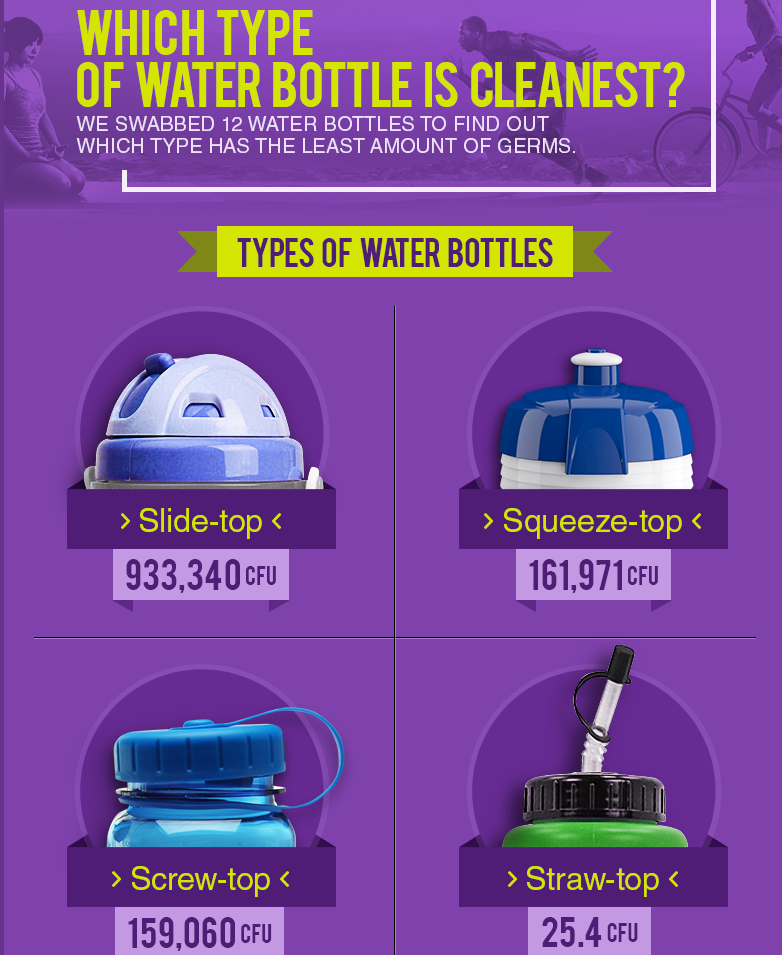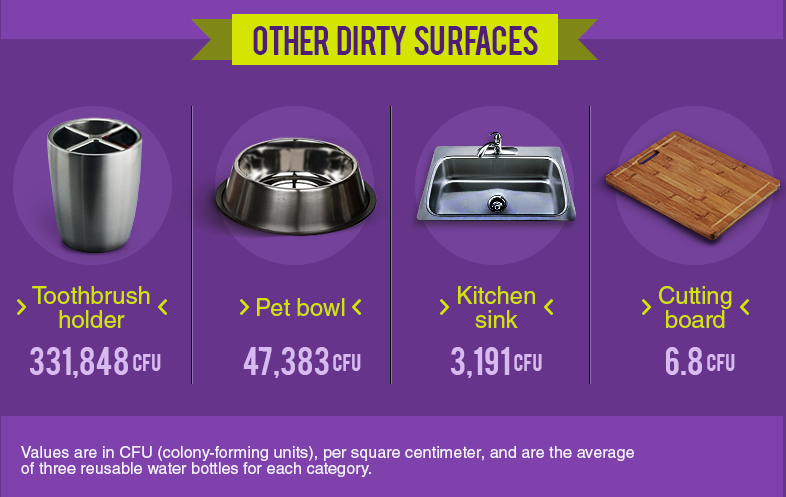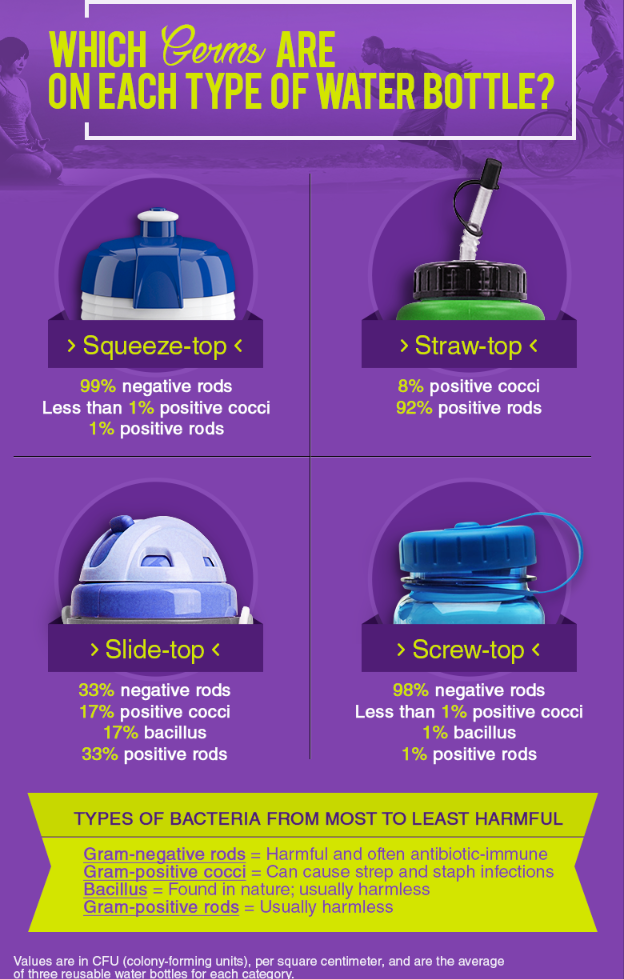The Reason You Should Rethink Drinking From Reusable Water Bottles

By:
You might think you're pretty cute lugging around a cool personalized water bottle that you can refill at anytime. But it turns out that some of those reusable bottles are potentially more harmful than you think.
Reusable water bottles are just "as bad for you as licking a toilet seat," according to research from the people over at Treadmill Reviews, Metro UK reported.
Researchers tested four types of water bottles for bacterial contamination, all of which had been used by an athlete and had not been washed for a week. The tested bottles included a screw-top, slide-top, squeeze-top, and straw-top. They evaluated the contamination on the bottles in terms of "colony forming units," or CFU, of bacteria per square centimeter.
 Treadmill Reviews - treadmillreviews.net
Treadmill Reviews - treadmillreviews.net
 Treadmillreviews - treadmillreviews.net
Treadmillreviews - treadmillreviews.net
Of the 12 bottles tested:
- The bottles contained an average of more than 300,000 CFU of bacteria. That's six times as much bacteria as you'd find on your dog's food bowl.
- The slide-top bottle contained the highest amount of bacteria: 933,340 CFU.
- The straw-top bottle had the least amount of bacteria: 25.4 CFU. But that's only 2 CFU less than the average home toilet seat.
More alarming: 99 percent of the bacteria on the squeeze-top and 98 percent of the bacteria on the screw-top bottles were known to cause "conditions such as pneumonia and blood infections in health care settings," Treadmill Reviews found.
 Treadmillreviews - treadmillreviews.net
Treadmillreviews - treadmillreviews.net
The amount of germs that accumulate on certain water bottles is due to the "lack of washing [out] bottles properly" and "a buildup of sweat, plus all the germs we encounter on a daily basis," according to Indy.
So what should you do about your water bottle?
Even without the germs, reusable plastic water bottles can contain Bisphenol A, otherwise known as BPA, a chemical that can lead to cancer, diabetes, and other illnesses, according to CBS. Stainless steel bottles can also pose problems, but they are a better option, according to Treadmill Reviews.
If you really want to be safe, then glass bottles might be your best bet. "Glass is chemical free, made from natural materials, and dishwasher safe," according to Aquasana.com.
